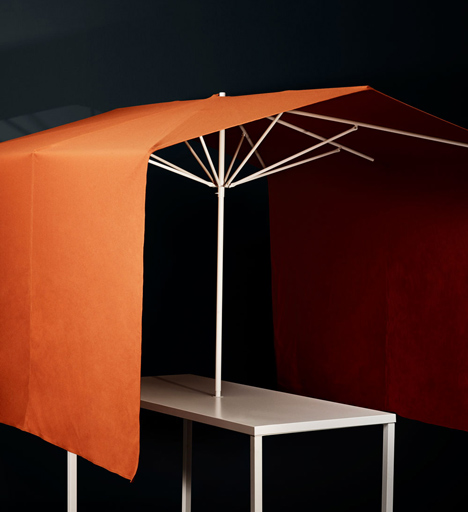Kvadrat's Divina fabric interpreted by 22 contemporary designers
Milan 2014: Werner Aisslinger, Martino Gampa and Robert Stadler are among 22 contemporary designers that have interpreted Danish textile brand Kvadrat's Divina fabric for a show in Milan this week (+ slideshow).
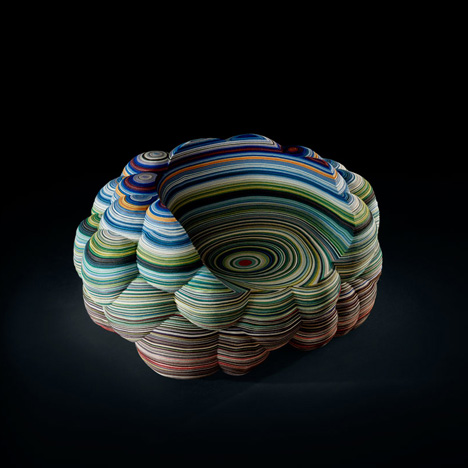
Known for its wide-ranging palette of colours, Kvadrat's felt-like fabric was originally created by Danish painter and graphic artist Finn Sködt in 1984.
"We didn't choose the name for nothing, we used it because it gave some inspiration as to which colours we could put into the scheme," said Sködt. "Every colour is divine if you ask me, every colour is nice. It's only a question of using them right or wrong."
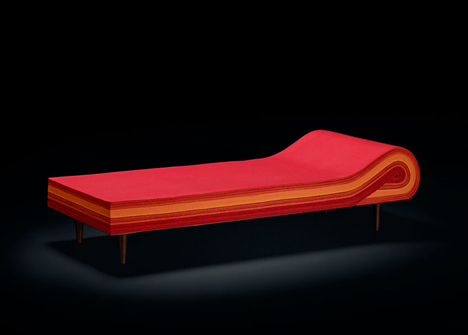
The designers were invited to create their own one-off piece using the fabric, which comes in 56 colours. "Divina is so intense that it is almost like paint, or something that has been sprayed onto a surface," said Anders Byriel, CEO of Kvadrat. "You could not have a colour that is more vivid or clearer than this."
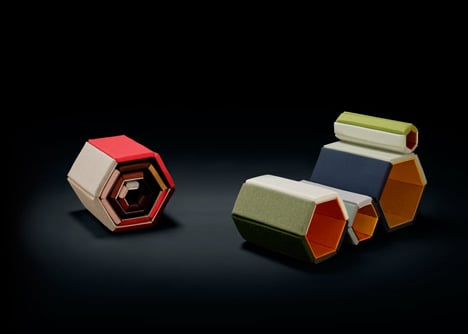
German designer Werner Aisslinger's Nesting Hexagons reference Joe Colombo's 1969 Tube chair, a piece comprising hollow cylinder modules fixed together in different formations, which can be dismantled and used separately like cushions.
Here, Aisslinger uses the hexagon shape as a basis to create a piece designed for lounging, which can then be stored by slotting each hexagon inside of each other. "Our concept came from the idea of a picnic, with a blanket in the grass and pillows around," said Aisslinger. "The hexagons are ideal for lolling around or relaxing on the ground, both indoors and outdoors."
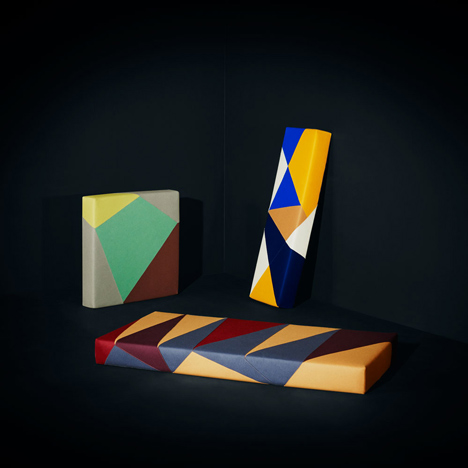
Working between art and design, London-based Martino Gamper has created Afternoon Nap, his second project with Divina, which features upholstered solid geometric volumes in various coloured triangulations of the fabric.
"For me, this simple shape, mixed with the complex and colourful fabric, creates a landscape where I could imagine having an afternoon nap," said Gamper.
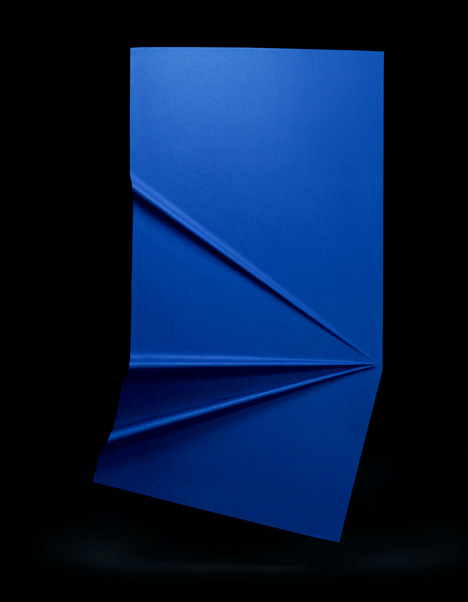
Austrian designer Robert Stadler's interpretation entitled Pli Bleu and Pli Violet uses two very similar shades of blue, emphasised by the folds in the piece. "My intention was to show the quality of the textile in the most pure and direct way possible," said Stadler. "The two pleated monochromes catch the ambient light in a subtle way."
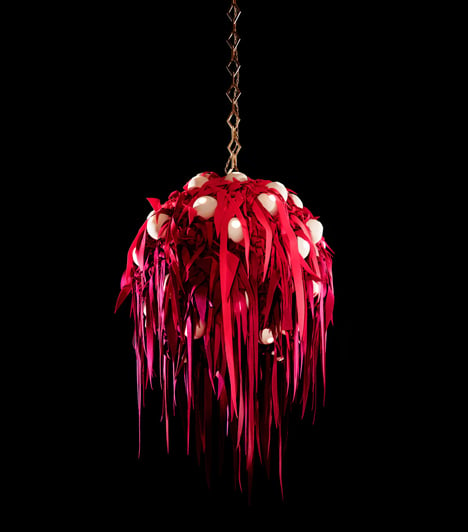
New York designer Lindsey Adelman has created a chandelier comprised of thin brightly coloured strips of the Divina fabric layered on top of one another while London designer Max Lamb has designed a series of oversized smocks.
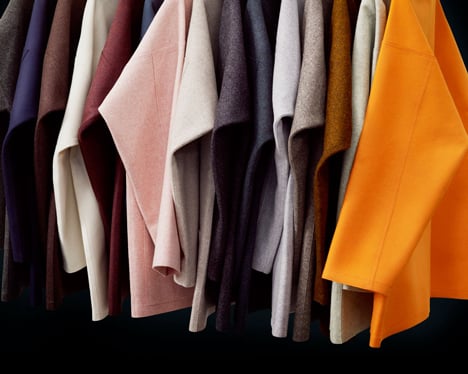
Richard Hutten's Layers Cloud chair is made from 545 layers of the textile shaped in clusters of spheres. The fabric also hangs taut from pegs to create the triangular-shaped Divina Hangers by Klemens Schillinger. Francois Dumas' Knapsack sofa fixes together horizontal lengths upholstered in a range of Divina's colours.
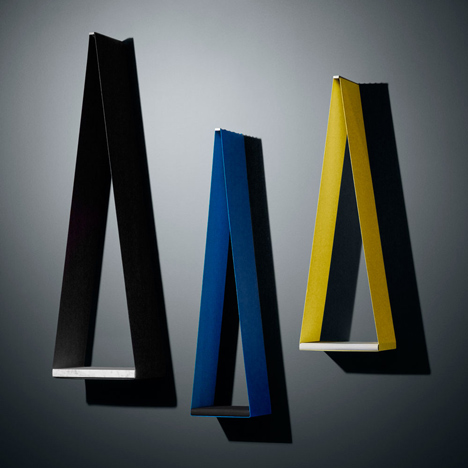
Other designers to interpret the Divina fabric include Philippe Nigro, Peter Marigold, Bethan Laura Wood, Big-Game, Jerszy Seymour and Anton Alvarez.
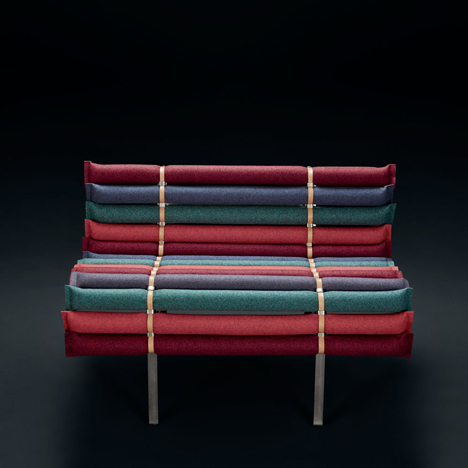
The Divina exhibition will take place at Arcade, Via San Gregorio 43 in Milan from 9-13 April.
Photography is by Casper Sejersen.
Here's some information from Kvadrat:
A special exhibition showcasing 22 contemporary interpretations of Divina by international designers
'We didn't choose the name for nothing – we used it because it gave some inspiration as to which colours we could put into the scheme. Every colour is divine, if you ask me – every colour is nice. It's only a question of using them right or wrong.' Finn Sködt.
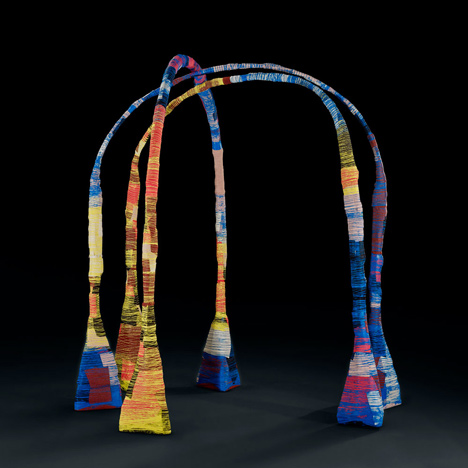
In celebration of Divina, one of its most iconic textiles, Kvadrat has invited 22 international designers to reinterpret the fabric in the context of contemporary design and to create a one-of-a-kind piece. The exhibition will be presented in Milan during the Salone Internazionale del Mobile, 8 – 13 April 2014.
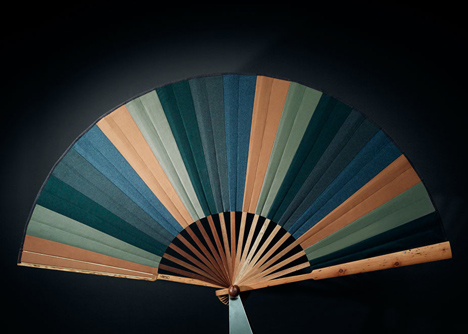
Divina is known for its extraordinary range of colours, first created in 1984 by the Danish painter and graphic artist Finn Sködt and regularly updated by him ever since. It is a full-cloth textile with a smooth, directionless and uniform surface, very similar to the properties of felt.
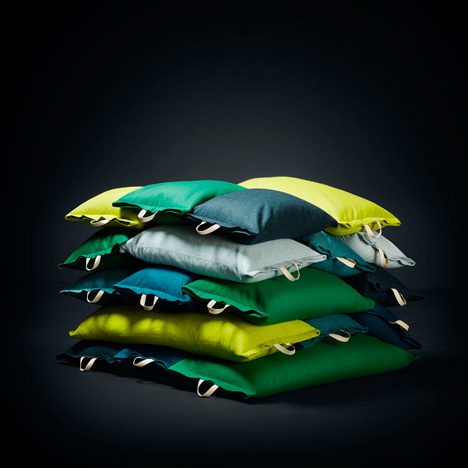
Divina translates as 'heavenly,' or 'divine,' and the name has been chosen because of the way colours can be expressed in the material. It is one of the finest products in Kvadrat's range for showing-off colours in all their glory. The textile comes in three different variations: Divina (56 colours), Divina Melange (25 colours) and Divina MD (27 colours).
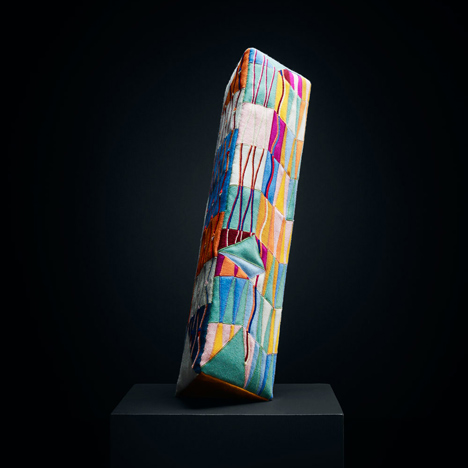
Finn Sködt, now 70, still continues his practice from his studio in Denmark; he is most noted for his instinctive understanding of colour. Sködt first worked with Kvadrat in the 1970s on their visual identity, soon after the company was founded, and later designed patterns and colour ranges for textiles such as Divina.
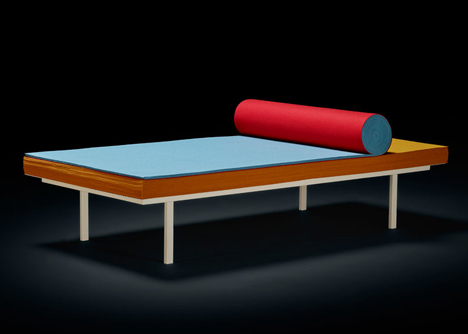
Designers and Curators
Designers selected for the Divina exhibition include Lindsey Adelman, Werner Aisslinger, Anton Alvarez, Big-Game, Duangrit Bunnag, Gonçalo Campos, Jonas' Design, François Dumas, Martino Gamper, Graphic Thought Facility, Richard Hutten, Silvia Knüppel, Max Lamb, Peter Marigold, Studio Minale-Maeda, Philippe Nigro, Klemens Schillinger, Muller Van Severen, Jerszy Seymour, Robert Stadler, Katharina Wahl and Bethan Laura Wood.
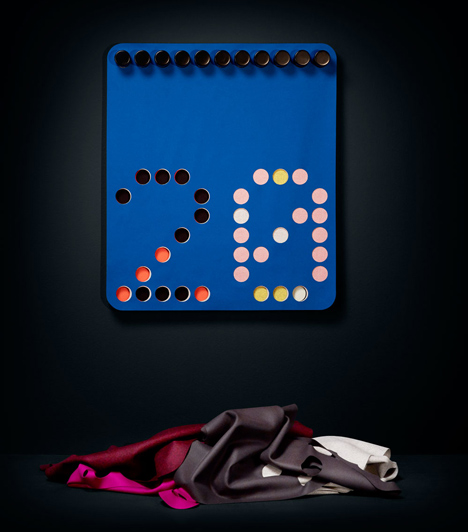
Curators include Njusja de Gier, Richard Hsu, Hans Maier-Aichen, Yves Marbrier and Constance Rubini. Kvadrat celebrates Divina during Salone Internazionale del Mobile, Milan 2014.
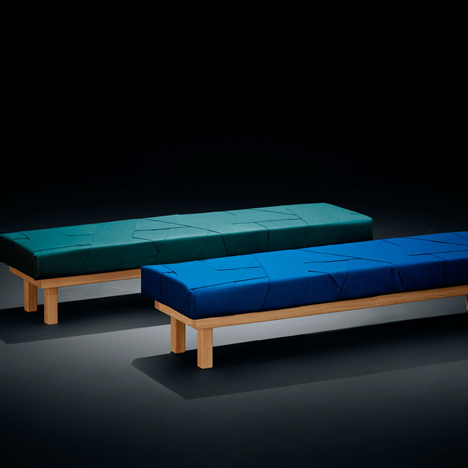
'We are delighted to be celebrating our iconic Divina textile coloured by Finn Sködt, a great friend and collaborator who has lent his painterly eye to Kvadrat since our early days in the 1970s. Over 30 years Divina has continued to be one of our most successful textiles, with a texture that lends itself to an intense and vibrant representation of colour. It is exciting to see the interpretations of this diverse group of contemporary designers and to pay tribute to Divina's incredible range.' Anders Byriel, CEO of Kvadrat.
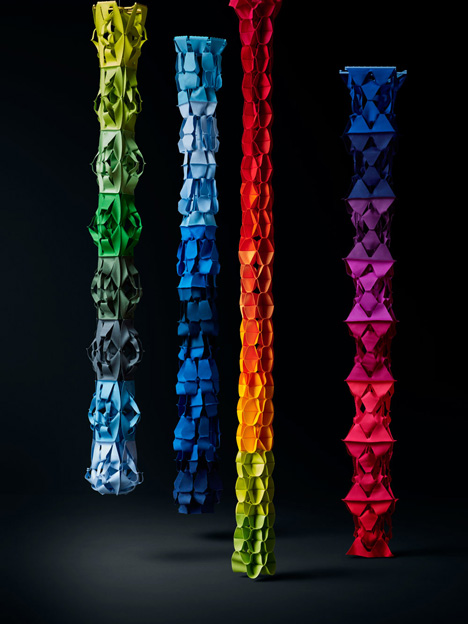
The Divina exhibition follows on from the success of the Hallingdal 65 exhibition in Milan in 2012, inspired by one of the company's first and most popular textiles, designed in 1965 by Nanna Ditzel. A special book with an essay by Hettie Judah and edited by Henrietta Thompson will accompany the exhibition.
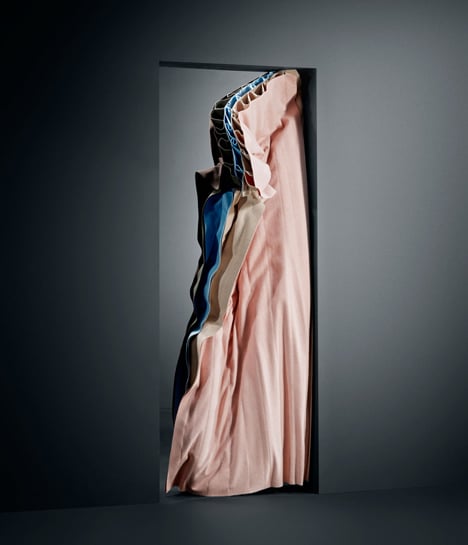
In addition to celebrating Divina a new collection of knitted fabrics by Ronan and Erwan Bouroullec will be launched in Kvadrat's Milan showroom. The company's sister brand, Danskina will showcase a new collection of rugs created under its newly appointed Design Director Hella Jongerius; Kinnasand will open a new Milan showroom designed by Pritzker Prize-winning architect Toyo Ito; and the launch of Kvadrat's new textile collection with Raf Simons (Creative Director, Dior) will be celebrated with the Italian retailer Spotti.
